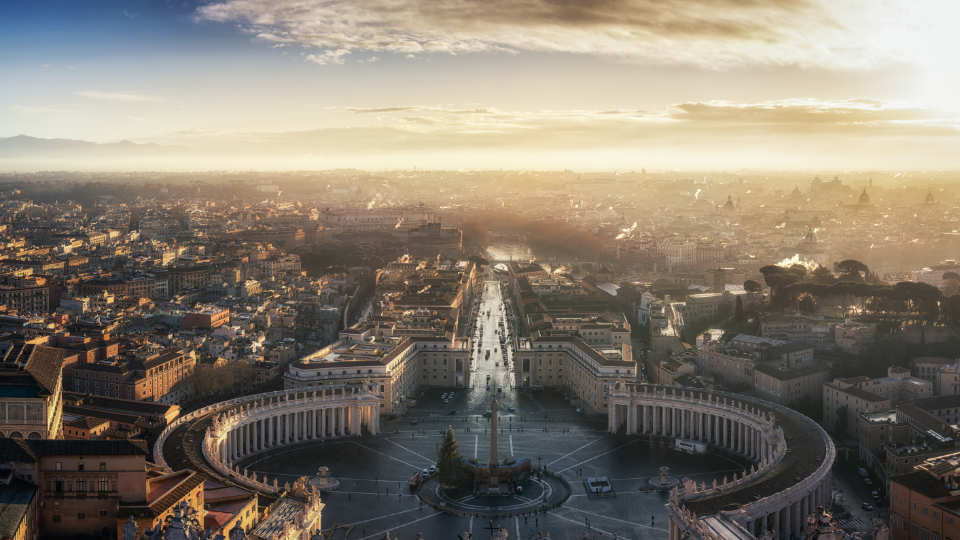
In 2023, the tenth year of his pontificate, Pope Francis exhibited remarkable legislative activity through the issuance of 14 motu propri. These documents, which emanate directly from the Pope's will to alter laws, have minimal consultations, limited involvement of other departments, and less formal documentation, relying predominantly on the Pope's intent. This year's array of reforms offers insight into the direction Pope Francis envisions for his pontificate.
Perhaps the most impactful document of 2023 was 'Fiducia Supplicans,' a declaration from the Dicastery for the Doctrine of the Faith that introduces “non-ritualized” blessings for individuals in irregular or homosexual unions. However, it's important to note that this was a dicastery document, not a governance decision by Pope Francis, who nonetheless legislated significantly in 2023.
The motu propri can be categorized into four distinct groups: those aiming to revolutionize Catholic culture, those altering the Vatican's organization, those restructuring Vatican finances, and "technical" motu propri, implementing ongoing reforms.
Cultural Change Motu Propri
One of the most significant motu propri aimed at cultural revolution within the Church is 'Ad Theologiam promovendam.' This document approves new statutes for the Pontifical Academy of Theology, advocating a paradigm shift in theological approach. It encourages theology to embrace the languages of other disciplines, promoting transdisciplinarity, a concept already present in the 2018 'Veritatis Gaudium' instruction on pontifical universities.
In line with this vision, two technical documents also play into this theme: the decree appointing the Superior Council of Coordination of the Pontifical Lateran University from August 1, 2023, and the decree appointing the Pontifical Delegate at the Pontifical Urbaniana University in Rome from September 14, 2023. These are part of the intention to reform and network pontifical universities, also reflected in the appointment letter sent to the new rector of the Pontificia Università Laternanense Amarante.
Another notable decree relates to priestly formation in the territory of the Diocese of Rome and the appointment of the rector of the Pontifical Major Seminary, published on July 4. Here, Pope Francis proposes his model of formation and appoints a priest, personally known to him from the Milanese hinterland, as rector and promotes him to bishop. Thus, the formation in the Diocese of Rome becomes a primarily papal matter.
Judicial System Reform Motu Propri
On May 13, 2023, a new fundamental law of the Vatican City State was promulgated, part of the second category of motu propri that change established order. This law seems to enact a process of "Vaticanization of the Holy See," essentially reversing a fundamental principle. The Vatican City State, originally conceived to serve the Holy See, has been increasingly central to Pope Francis' decisions. The last Fundamental Law, approved by John Paul II in 2000, was aimed at recognizing the Pope's universal dimension rather than that of a state monarch. This law was part of a trajectory begun in 1939 with Pius XI, distancing ordinary management from the Pope.
However, under Pope Francis, the Pope's role has become central again, with powers concentrated solely in his hands, while others have functions. Governance functions are entrusted to a commission, not necessarily cardinal, aligning with the principle that mission grants authority, as established in the apostolic constitution 'Praedicate Evangelium.' The new Fundamental Law emphasizes the Vatican City State's role in ensuring the Holy See's absolute and visible independence and its unquestionable sovereignty internationally.
Another reform affecting the legal system is the motu proprio on changes to the criminal law and judicial system of the Vatican City State from April 12, 2023. This established that the Court of Cassation would consist of four cardinals appointed for five years by the Pope, who also designates the president, along with two or more appointed judges for a three-year term.
Financial Management Motu Propri
On February 20, 2023, Pope Francis promulgated the motu proprio 'Il diritto nativo,' reiterating that no Vatican or affiliated entity can consider assets as its own, but rather that all entities should recognize their assets as part of a broader perimeter. This part of a gradual centralization of the management of the Holy See's assets, aligning with the project initiated by Cardinal George Pell as Prefect of the Secretariat for the Economy.
With the apostolic constitution 'Praedicate Evangelium,' Pope Francis established a principle of centralization, further specified in a rescriptum from August 2023. This stated that "all financial resources of the Holy See and institutions connected with the Holy See must be transferred to the Institute for the Works of Religion, which is to be considered the only and exclusive entity entitled to asset management and the custodian of the movable assets of the Holy See and institutions connected with the Holy See."
Motu Propri for Implementing Ongoing Reforms
On April 2, 2023, Pope Francis issued a motu proprio modifying the terms of appeal for members dismissed from an institute of consecrated life. Additionally, an update to 'Vos Estis Lux Mundi' was made on March 25, after four years of experimentation. This update harmonized procedures against abuses with other normative reforms introduced since 2019.
On April 16, 2023, Pope Francis published the apostolic letter in the form of a motu proprio 'Iam Pridem,' modifying certain norms of the Code of Canons of the Eastern Churches on bishops who have reached eighty years of age in the Synod of their respective Churches sui iuris.
Finally, between January and February of last year, Pope Francis promulgated a decree for the assignment of sectors, areas, and pastoral services to the auxiliary bishops of the Diocese of Rome (January 6) and the regulation of the Independent Supervisory Commission of the Vicariate (February 14), direct consequences of the reform of the Vicariate of the Diocese of Rome. This reform also centralizes the Pope's role, making the Vicar just one auxiliary among many.
Additionally, the apostolic letter in the form of a motu proprio from August 8, 2023, modifies canons 295-296 regarding personal prelatures. This affects the Opus Dei, the only personal prelature in the Church, calling it to a challenging reform of its Statutes and further transformation after its constitution as a personal prelature in the Church.

Andrea Gagliarducci is an Italian journalist for Catholic News Agency and Vatican analyst for ACI Stampa. He is a contributor to the National Catholic Register.








